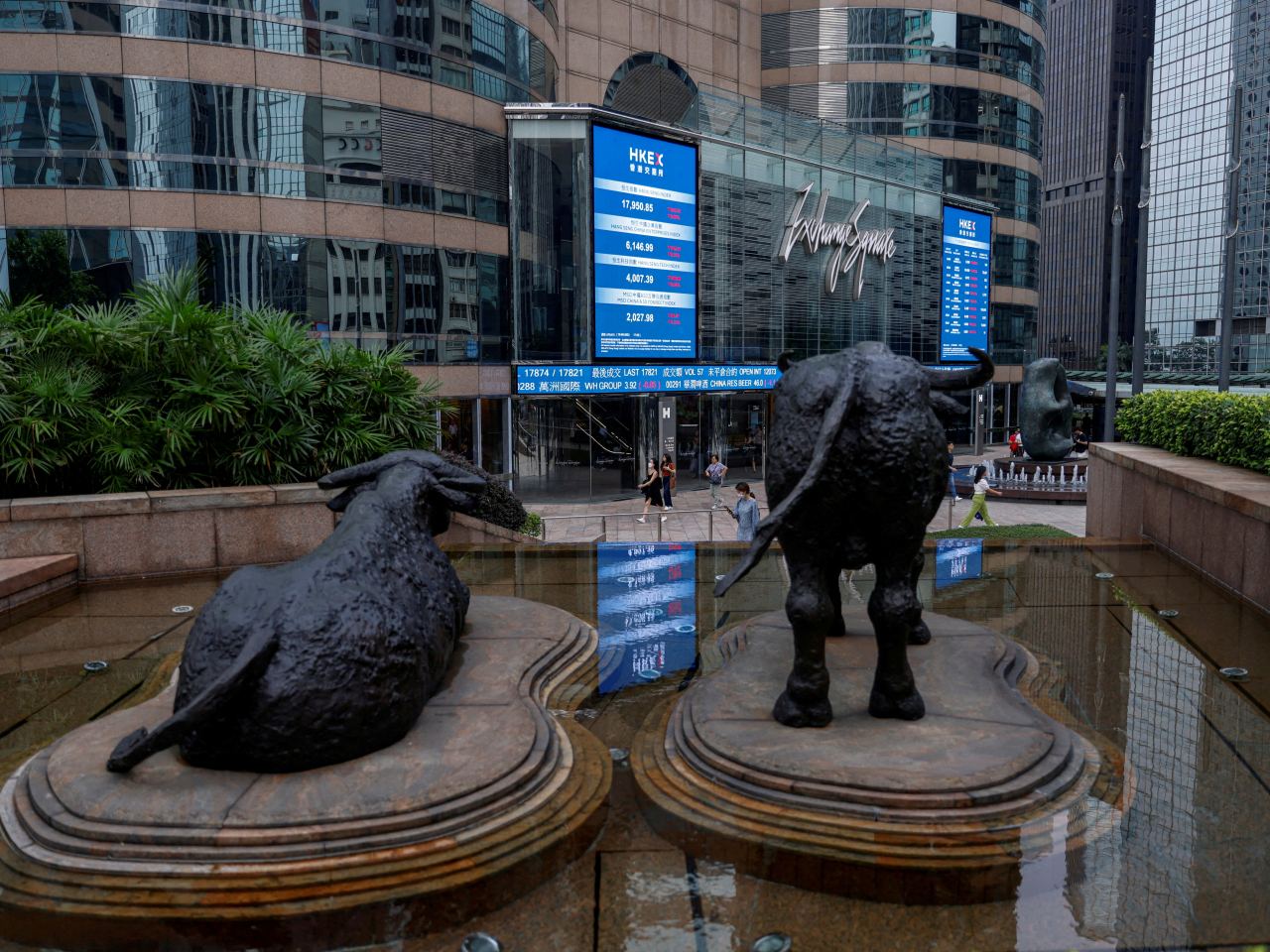The mainland's blue-chip index fell the most in nearly five months on Thursday in the wake of media reports of possible regulatory curbs on speculation and the end of a politically significant military parade in Beijing.
In Hong Kong, the benchmark Hang Seng Index ended down 1.12 percent at 25,058.
The Hang Seng China Enterprises Index fell 1.25 percent to 8,937 while the Hang Seng Tech Index fell 1.85 percent to 5,578.
On the mainland, the benchmark Shanghai Composite Index ended down 1.25 percent at 3,765 while the Shenzhen Component Index closed 2.83 percent lower at 12,118.
The combined turnover of these two indexes was 2.54 trillion yuan, up from 2.36 trillion yuan on Wednesday.
Stocks in the food, papermaking and photovoltaic sectors led gains while those related to semiconductors and military industry suffered major losses.
The ChiNext Index, tracking China's Nasdaq-style board of growth enterprises, fell 4.25 percent to close at 2,776.
Sentiment also soured on a tumble in tech bellwether Cambricon amid worries about fund outflows in an upcoming index rebalancing.
The retreats came after Bloomberg News reported that China's financial regulators are considering a number of cooling measures for the stock market, including removing some short-selling curbs.
Tech shares, a key pillar of China's bull run, led the market decline on Thursday with artificial intelligence chip giant Cambricon slumping 15 percent, its biggest daily loss since January.
A doubling in Cambricon's share price in August boosted the stock's weighting on the Star50 Index to 15 percent. That exceeds the weighting cap of 10 percent, raising concerns of rebalancing by passive funds as the result of a planned weighting adjustment of the index on September 12.
"The index was designed to be representative of the market, and no single stock can have excessive weighting," said Duan Shihua, general manager of Shanghai Changer Investment Management Consulting.
"So, when weighting of a stock is reduced, passive funds that track the index must sell some shares." (Reuters/Xinhua)





